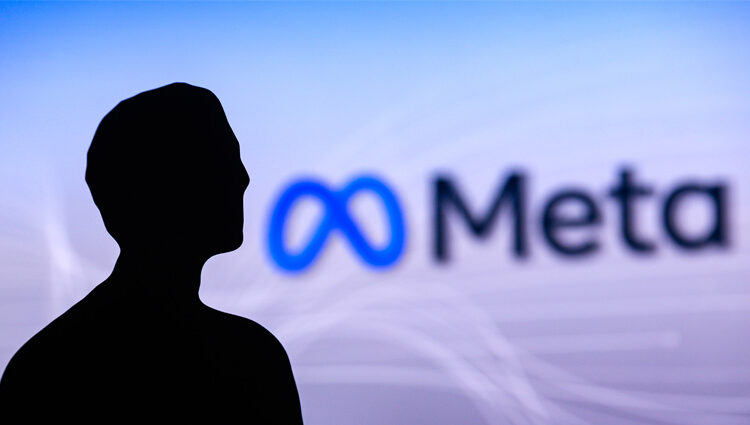Meta Platforms released its first quarter (Q1) earnings report on Wednesday, reporting stronger-than-expected profits at the start of 2023. This has sent shares skyrocketing following the company’s earnings report amid its ‘Year of Efficiency’ plans to streamline operations.
In the most recent figures, Meta reported around $28.6 billion USD in revenues, or $2.20 in earnings per share. These beat expectations of $27.7 billion USD and $2.02, respectively, from global analysts.
News of the earnings saw Meta’s shares rally 10 per cent, leading to its best performance since February last year. According to Forbes, Mark Zuckerberg, Chief Executive, Meta gained roughly $8.4 billion in net worth due to the rise in stock prices.
The Menlo Park-based firm has struggled to rein in its expenses and restructure operations after haemorrhaging profits over the last few quarters. Much of this was due to its Reality Labs division, which delivered disappointing figures due to slow adoption rates and a costly research and development (R&D) tab of over $10 billion USD.
However, Meta’s Reality Labs division, which develops its virtual, augmented, and mixed reality (VR/AR/MR) ambitions, saw earnings nosedive $1 billion. Reports show that this is a 30 percent drop in analysts’ expectations compare to the same period last year.
The tech giant also cut its estimates for 2023 by around $3 billion USD and forecast by $5 billion USD in its February earnings. News of this comes after a massive wave of layoffs, with an initial 11,000 employees in November and a further 10,000 in April.
The company explained further that it had announced “three rounds of planned layoffs” in march to lower its workforce to around 10,000 employees “across the Family of Apps (FoA) and Reality Labs (RL) segments.”
It continued, stating,
“In connection with these layoffs, we expect to incur total pre-tax severance and related personnel costs of approximately $1 billion, of which $523 million was recognized during the first quarter of 2023 and the remaining charges will be substantially recorded by the end of 2023”
In the investors’ call, Zuckerberg also highlighted the firm’s round of technical worker layoffs last week and told investors to expect more job cuts in its business divisions in May. Following the restructuring, Li added that the company would “resume hiring and we would expect headcount growth in excess of one to two percent in 2024.”
The Chinese Connection?
China, a key ally in Meta’s battle to raise earnings, helped the firm keep afloat after three consecutive quarters of declining revenues.
In the earnings call, Susan Li, Chief Financial Officer, Meta told attendees that the firm saw advertisers in China “accelerate.” Many of the companies targeted Chinese users and related markets, “which we believe was due in part to dropping shipping costs and easing COVID lockdown for those advertisers,” she said.
China’s easing of its zero-COVID policy allowed Chinese firms to expand their market outreach to global customers, benefiting the US tech giant. This boosted Meta’s sales roughly 3 percent year over year to $28.7 billion in the first quarter (Q1).
Additional concerns included a “volatile macro environment” in 2023 due to a “challenging regulatory environment,” Li said, citing lawmakers in the European Union and the United Kingdom.
The EU has consistently cracked down on data privacy concerns from Meta’s transatlantic data flows over the last few years, leading to a settlement in March last year. Both Washington and Brussels inked a conciliatory deal to mitigate risks from potential violations of the latter’s General Data Protection Regulation (GDPR) Act.
The news also comes amid fierce standoffs with the British government, which passed its Online Safety Bill. The legislation could fine or imprison executives from firms it states have failed to protect online users.
Westminster passed the law amid a major controversy involving a young woman who took her life after exposure to harmful content on Facebook. This triggered a public outcry from lawmakers and family-orientated users, leading to the law’s creation and advocacy.
Zuckerberg’s Metaverse Plans
Despite ongoing troubles with its Metaverse plans, Zuckerberg aims to continue spending on the spatial communications platform.
Reality Labs posted a $4 billion USD loss in Q1, a slight decrease from $4.3 billion USD in losses from Q4 2022. The division also earned roughly $339 million USD in sales for the period.
Zuckerberg will continue developing Meta’s metaverse ambitions while also focusing on the enterprise’s artificial intelligence (AI) solutions. Many of these aim to facilitate business messaging services, advertising, and others.
Zuckerberg said in a statement,
“A narrative has developed that we’re somehow moving away from focusing on the metaverse division, so I just want to say upfront that that’s not accurate. We’ve been focusing on both AI and the metaverse for years now and we will continue to focus on both. The two areas are also related.”
The news comes just a day after other major US tech giants posted higher-than-expected earnings from their respective Q1 earnings.
Companies such as Alphabet, Microsoft, NVIDIA, Amazon, Apple, and Tesla also reported a rise in earnings following their respective layoffs. The companies reported a combined earnings of around $2 trillion USD in market capitalisation for the current year.
To date, Meta has lost over $20 billion USD after it rebranded from Facebook to Meta Platforms at the Facebook Connect Event in October 2021.
More to follow…

